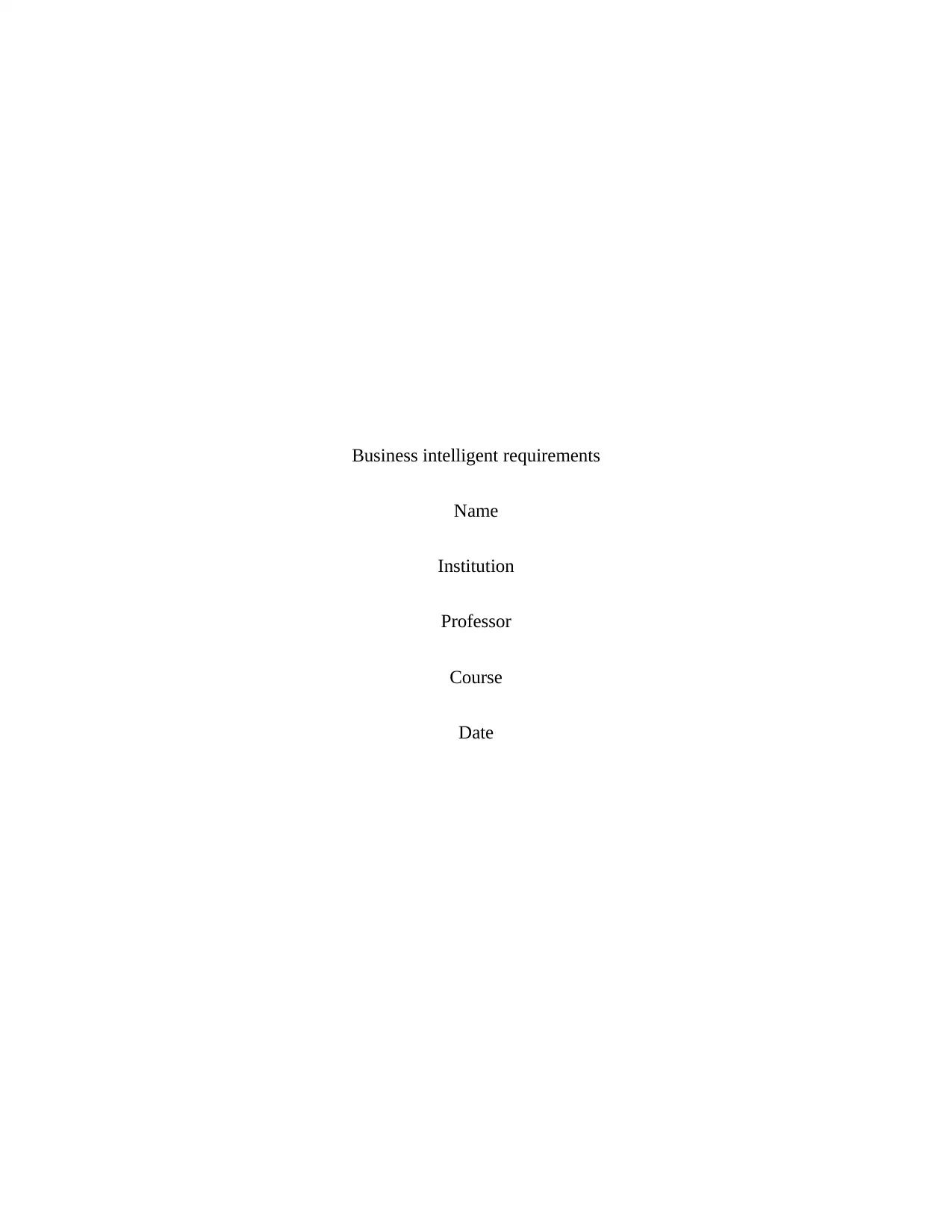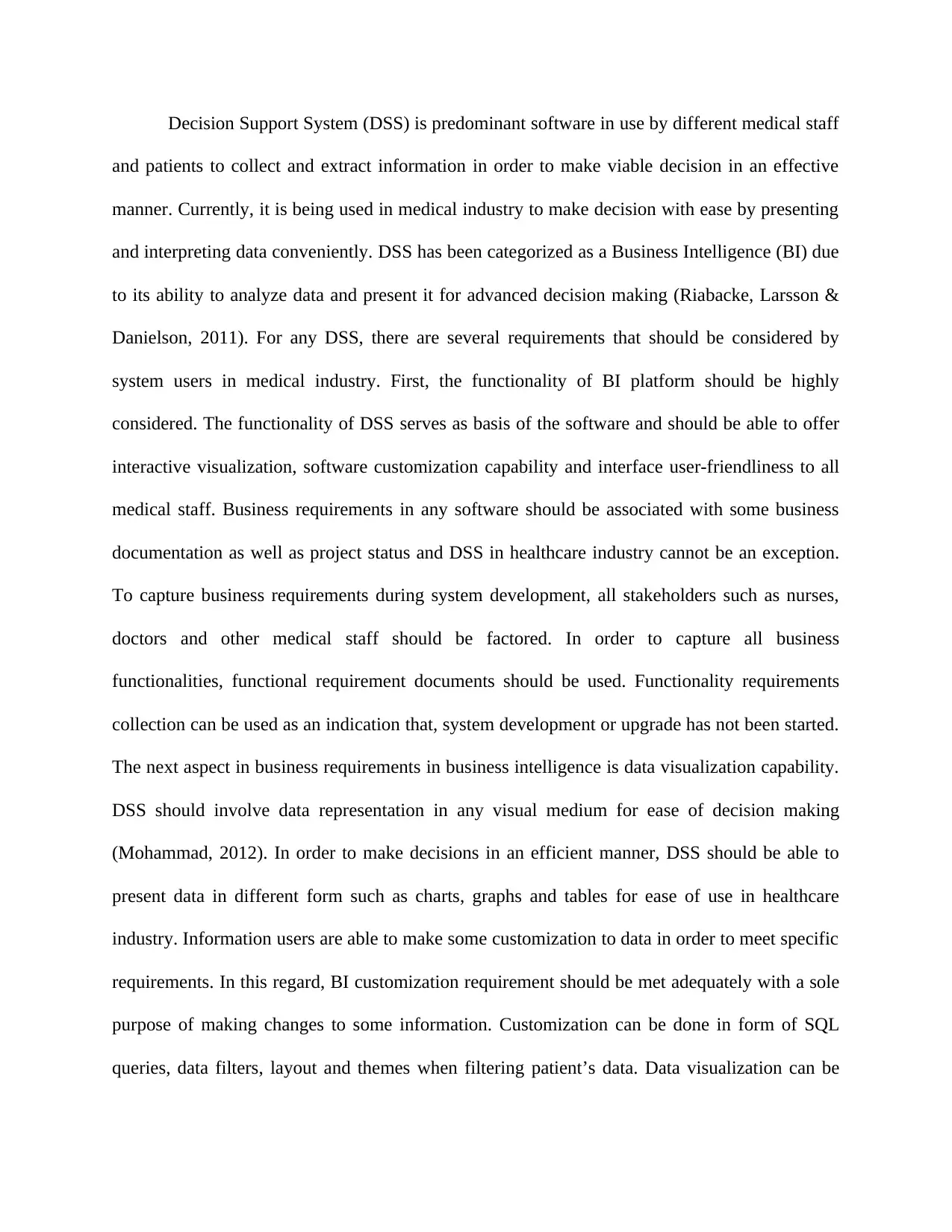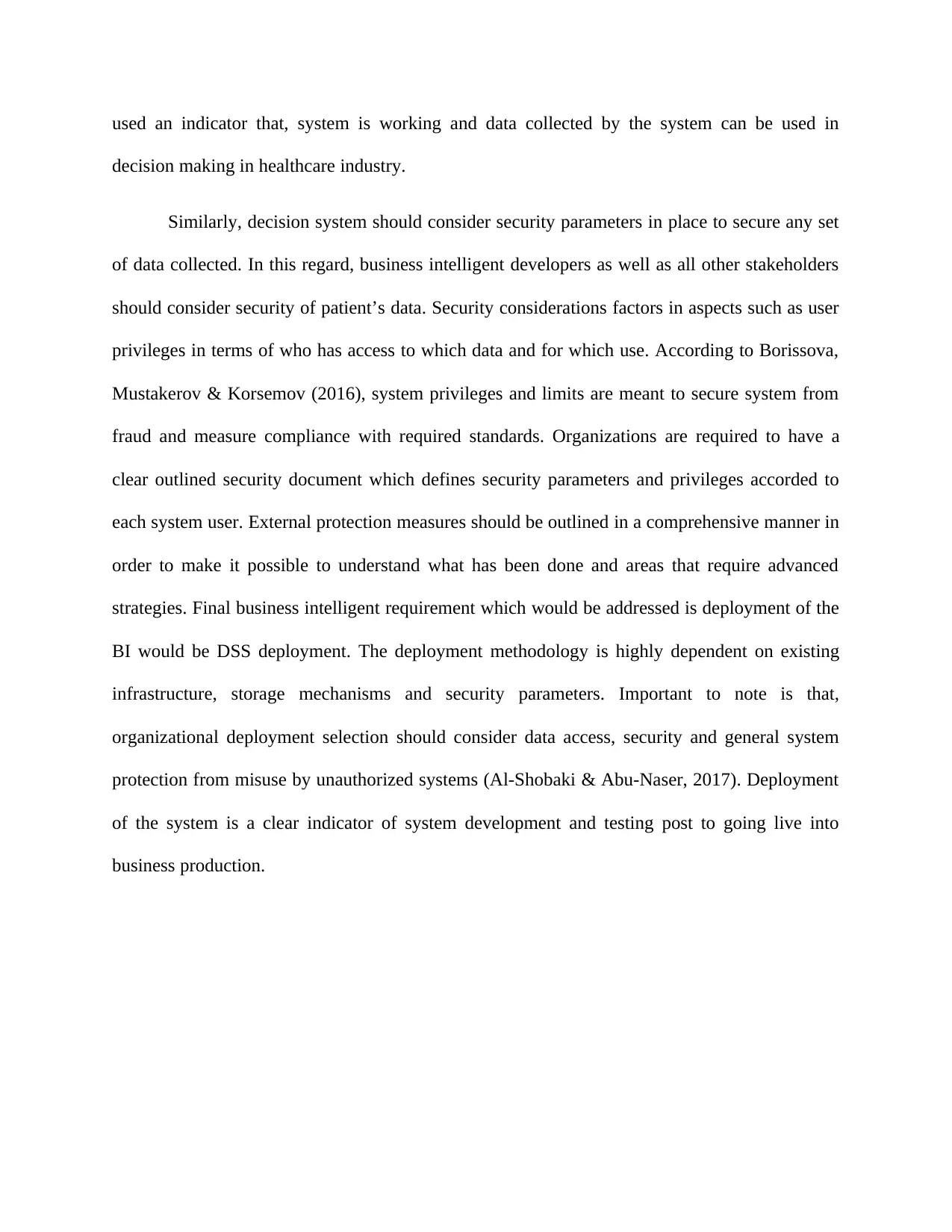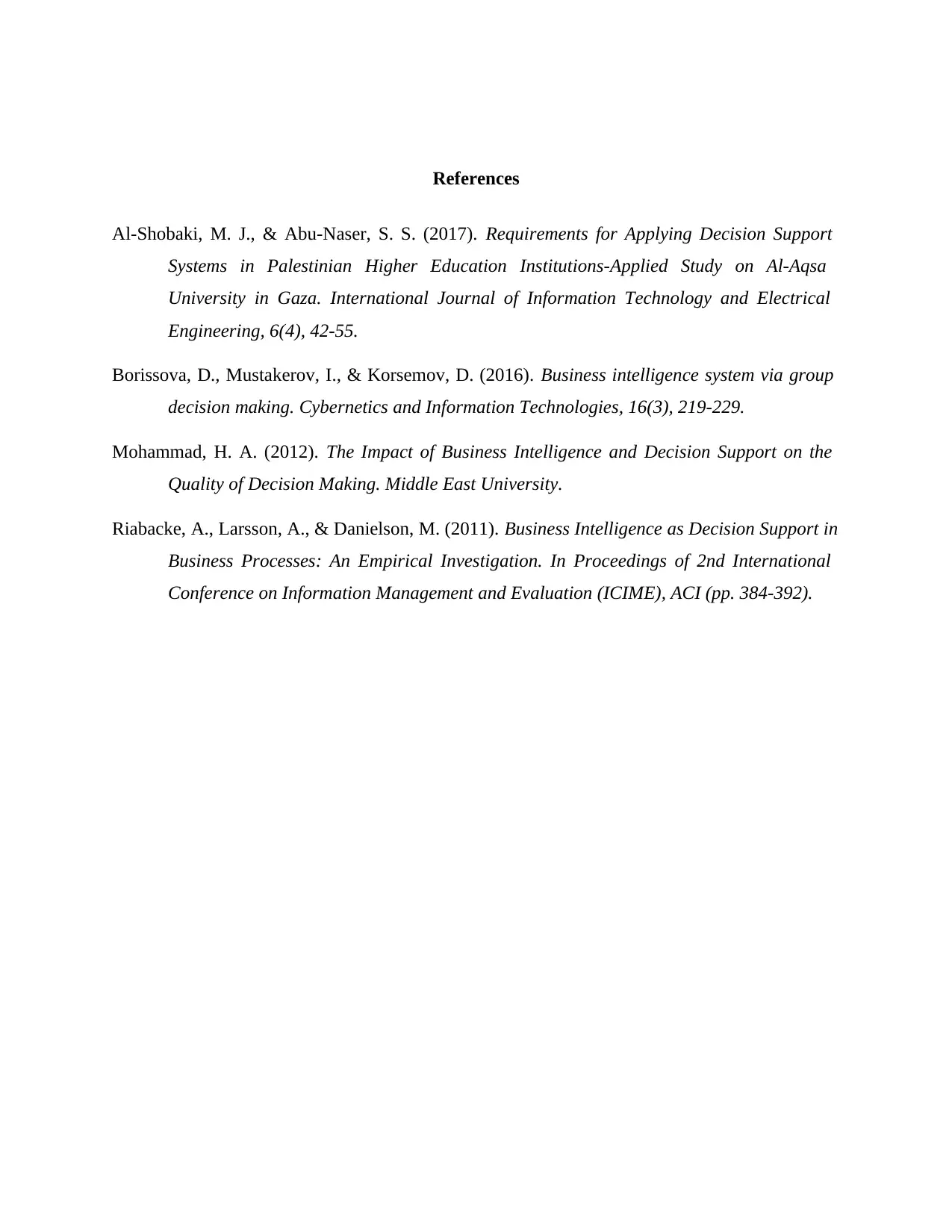Exploring Business Intelligence Requirements for Healthcare DSS
VerifiedAdded on 2023/05/30
|4
|797
|317
Report
AI Summary
This report discusses the essential business intelligence (BI) requirements for Decision Support Systems (DSS) in the medical industry. It emphasizes the importance of functionality, including interactive visualization, customization, and user-friendliness for medical staff. The report highlights the need for comprehensive business documentation and stakeholder involvement, particularly in capturing functional requirements. Data visualization capabilities, presenting data through charts, graphs, and tables, are crucial for efficient decision-making, along with customization options like SQL queries and data filters. Security parameters are paramount to protect patient data, including user privileges and compliance with security standards. Finally, the deployment methodology, considering existing infrastructure and security, is critical for system protection. The report references various studies to support its findings, emphasizing the integration of these requirements for effective DSS implementation in healthcare.
1 out of 4










![[object Object]](/_next/static/media/star-bottom.7253800d.svg)